As Khoury College celebrates 40, Vancouver showcases three years of “CS for Everyone”
Author: Milton Posner
Date: 12.21.22
This piece is the third in a series on Khoury College’s 40th anniversary celebrations, a series that also covers events in Boston and London.
As Khoury College planned its 40th anniversary celebration tour, each of Northeastern’s global campuses brainstormed how to mark the occasion. In diverse Vancouver, where the enduring influence of Indigenous peoples rings loudly, the choice was clear: the college’s mission of “CS for Everyone” would seize the spotlight.
As Khoury College planned its 40th anniversary celebration tour, each of Northeastern’s global campuses brainstormed how to mark the occasion. In diverse Vancouver, where the enduring influence of Indigenous peoples rings loudly, the choice was clear: the college’s mission of “CS for Everyone” would seize the spotlight.
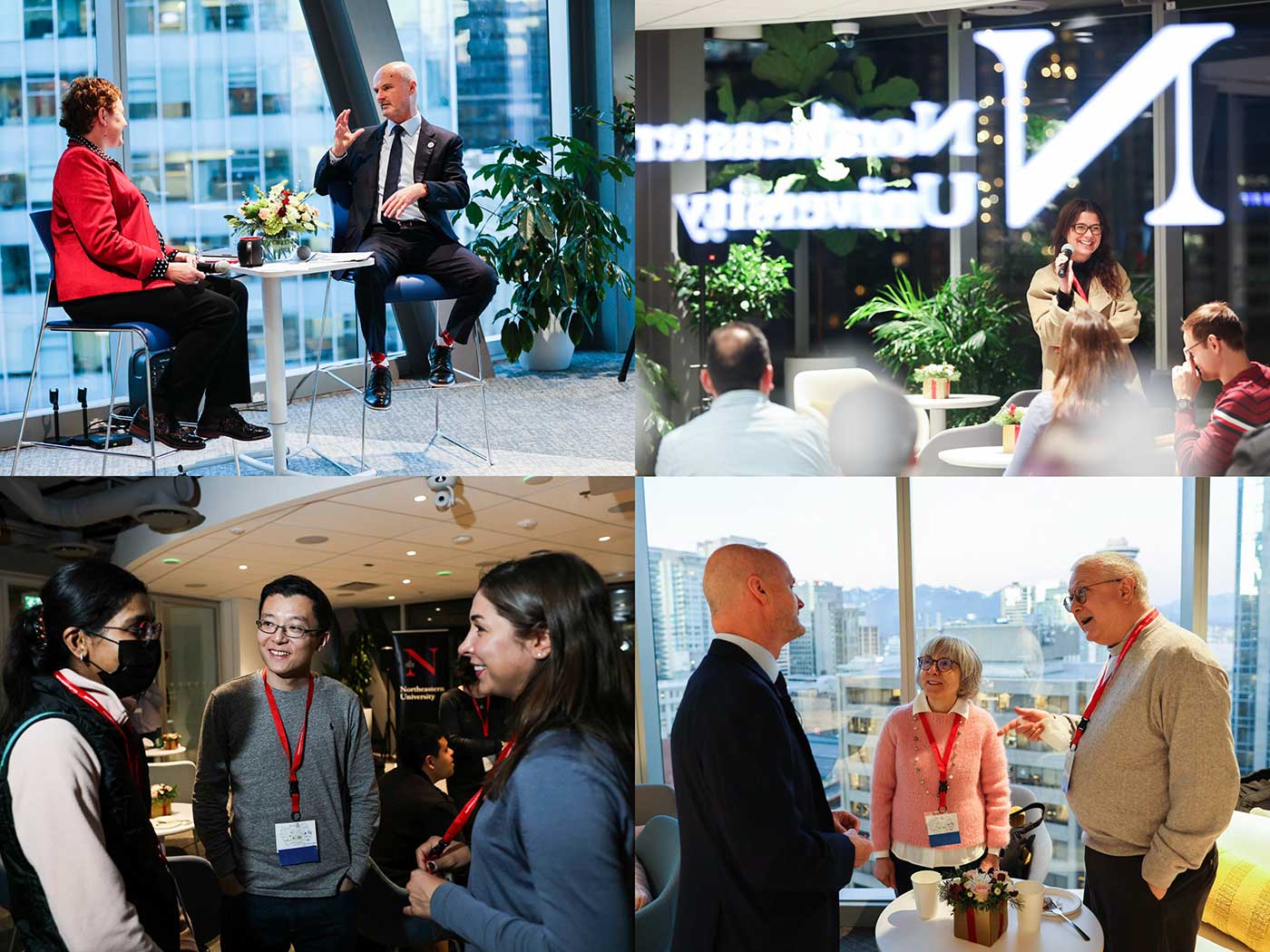
So last week at the Vancouver campus — through a dean-to-dean fireside chat, a workshop of local tech business leaders, and a showcase of student research projects — Khoury College’s students, faculty, staff, and industry partners celebrated their commitment to leveraging computer science for societal good. After just three years of operation, the Vancouver campus had plenty to celebrate.
“Northeastern is brilliant because it says, ‘You’re not going to be a franchise. You’re going to take what Northeastern can give you, then build out while considering your campus community,’” said Steve Eccles, CEO and dean of Northeastern Vancouver. “It’s a gift.”
In the fireside chat opposite Khoury College Dean Elizabeth Mynatt, Eccles highlighted the college’s support of the Vancouver campus by explaining that the second employee he hired — typically an assistant or operations director — was instead a director of computing programs.
“Bethany Edmunds brought not just expertise in the field, but also industry connections and a vision of computer science for positive impact,” Eccles said. “It was a brilliant fit, and Khoury College has helped us scale to the point where we welcomed 170 graduate students in computer science this academic year.” Many of those students are enrolled in the Align master’s program, which provides an on-ramp to computer science for students who studied something else as undergraduates.
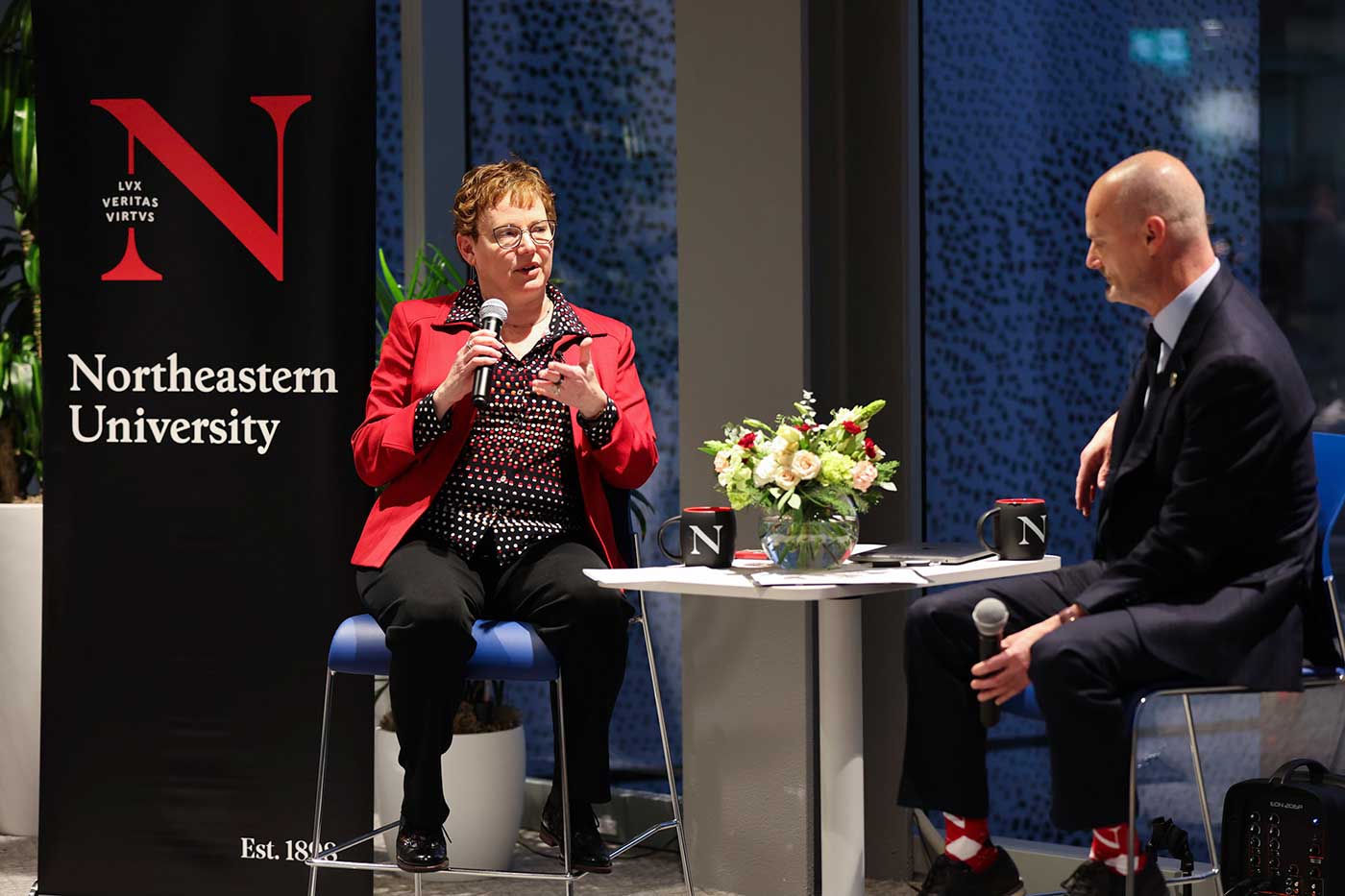
“For computer science to be for everyone, it has to be accessible to a wider population than it traditionally has been,” Mynatt explained, noting the hundred plus different undergraduate degrees that Aligners hold. “Align lets students add computer science, not just move to it. Our partners love that because not only are they hiring someone with amazing computer science skills, they’re hiring that holistic package of existing passions and interests amplified with computer science.”
Many Aligners come from groups underrepresented in computer science, further reflecting the “CS for Everyone” ethos. Edmunds and Mynatt explained that pursuing this goal means avoiding “tech saviorism,” the tendency of researchers and firms to design tech solutions for use by vulnerable populations without consulting those populations about their challenges, traditions, and needs. So at the anniversary celebration’s workshop, Edmunds and Mynatt collaborated with local business leaders who had forged relationships with vulnerable communities and made an impact.
“We want to partner authentically with marginalized communities, to work in a way that’s respectful and doesn’t do harm, and to figure out how we as software developers can do a better job developing for everybody,” Edmunds said. “It’s a good starting place to bring in leaders who know how to work with communities in a respectful, honest, and equitable way.”
From insights learned from these leaders, Khoury College aims to craft best practices for developers working with marginalized populations. By baking these lessons and practices into the curriculum, Edmunds said, the rhetoric becomes actionable.
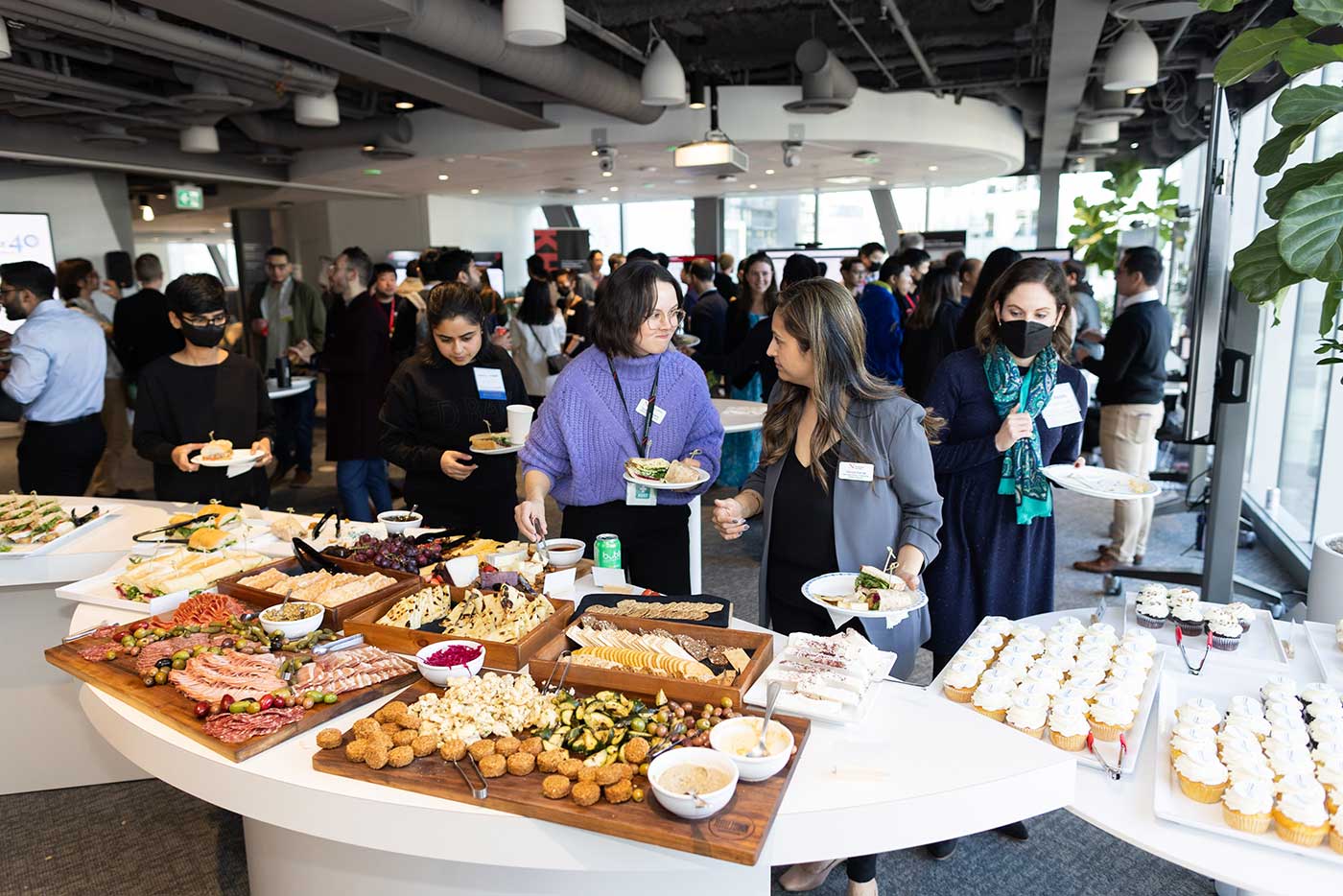
Then came the celebration’s culminating event, in which the Vancouver master’s students showcased their end-of-program research projects, many of which stemmed from collaboration with industry partners in attendance. One such partner, Bill Lakeland of cloud-based drone footage company Spexi Geospatial, was even announced as a 40 for 40 honoree for his work turning student projects into more immersive, longer-term initiatives. The goal, Edmunds notes, is to enrich the students’ education by having them apply research to partners’ actual needs rather than classroom examples.
READ: 40 for 40 profiles honor people integral to Khoury College’s success
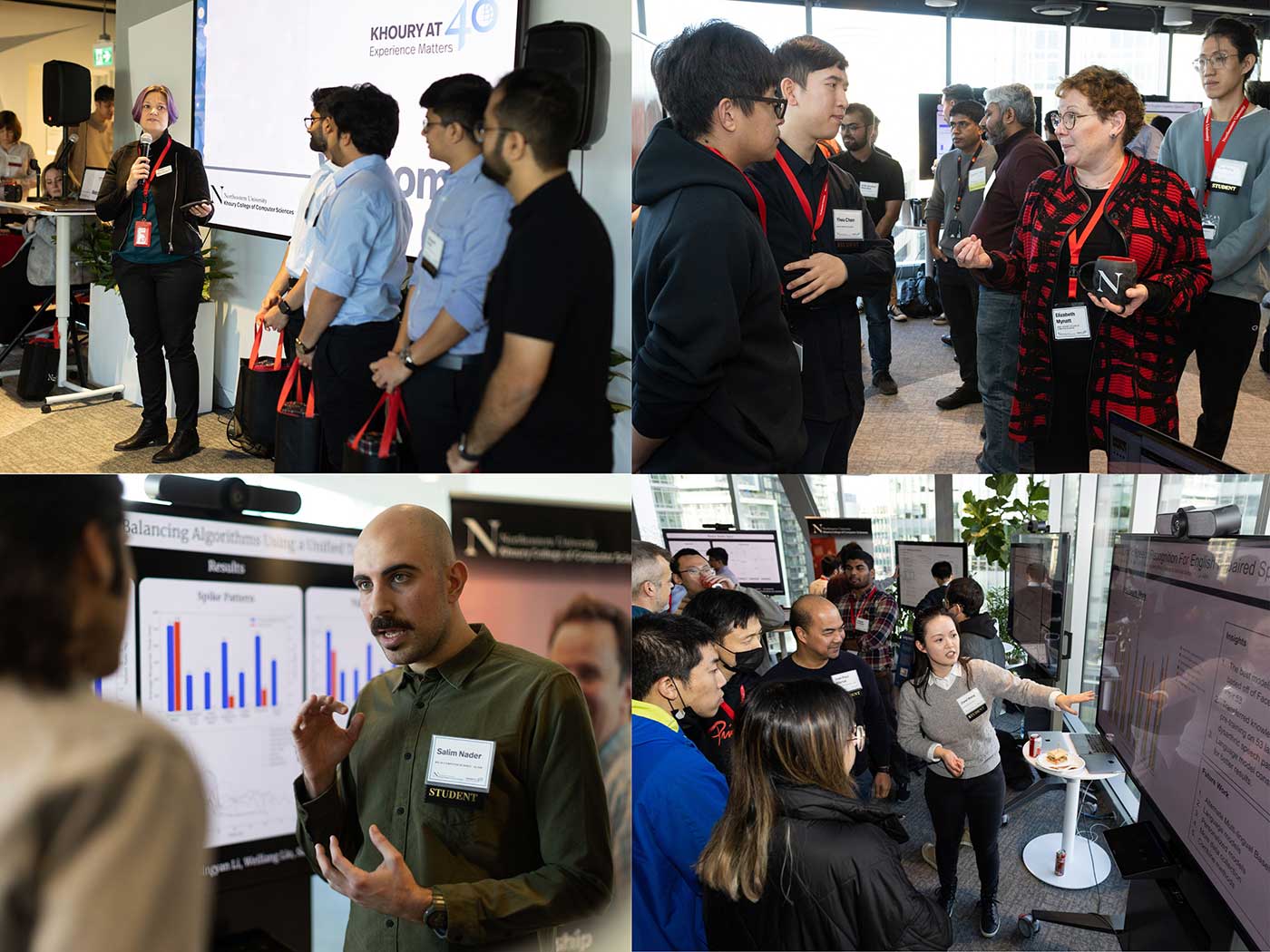
“When companies come to hire our graduates, they see that those graduates did projects that matter, that they applied their skills and had an impact,” said Michal Aibin, the faculty lead and mentor for the capstone course that facilitated the showcase projects. “We saw industry partners amazed by these projects. We’re seeing more and more projects coming, more partners, more industry and research funding. The Vancouver campus is growing, and it’s a great place to see and be seen.”
“We’re showing that campuses outside of Boston aren’t satellites. This is research outside of Boston, and while it’s different, it can thrive, here and everywhere,” Edmunds added. “The 40th Anniversary shows that each campus has its own identity based on where it is. In Vancouver, there’s an ‘every company is a tech company’ feel, and you can see that in the companies supporting the tech ecosystem at the student showcase.”
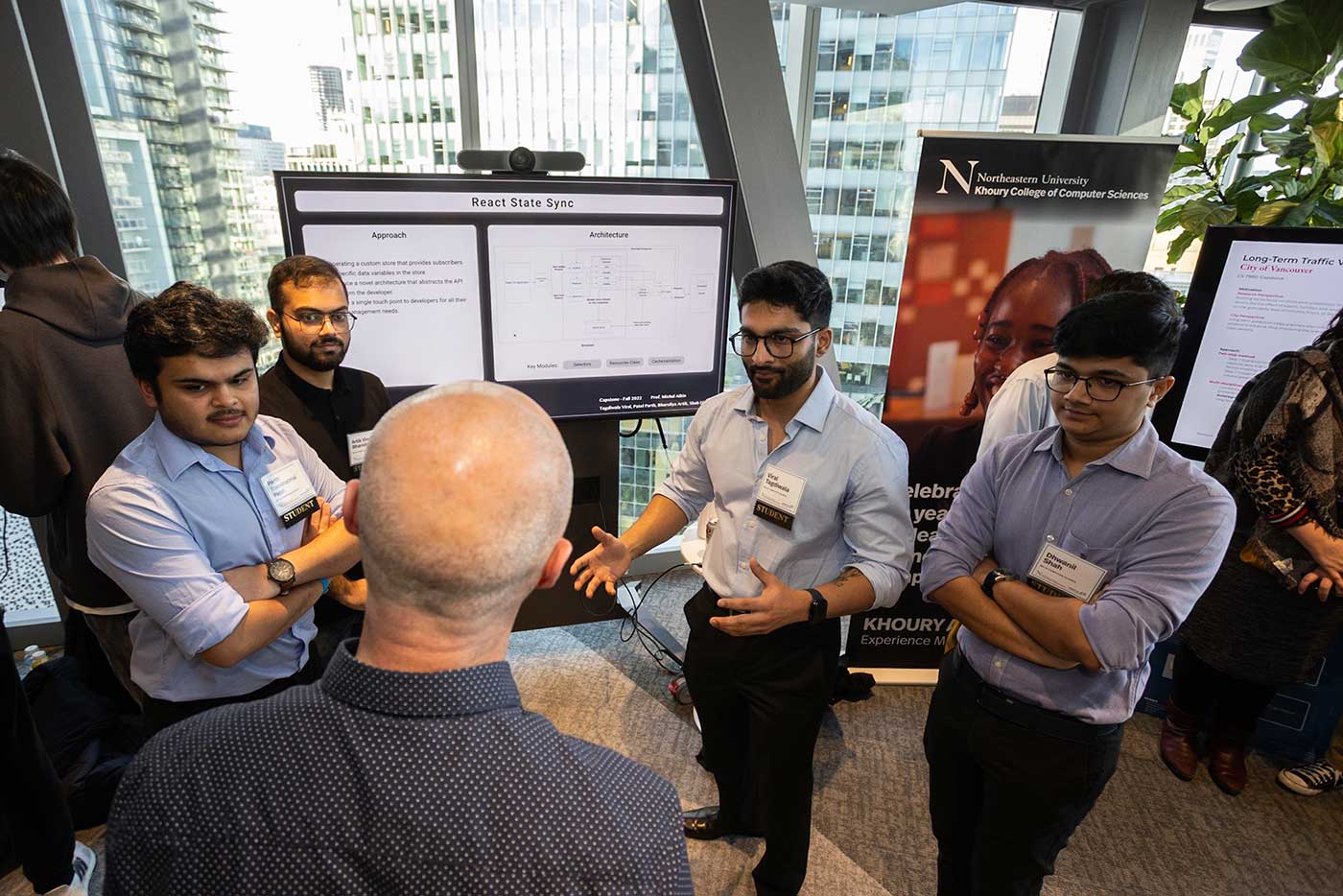
For her part, Mynatt saluted the campus’s research as representative of a larger shift.
“Computer science researchers traditionally had a bit of a chip on our shoulder compared to engineering and mathematics. We had to prove that we could build things, and that sheer act of creation fueled the industry and community,” Mynatt said. “But we were creating brighter and faster and shinier things for ourselves, and focusing on a more rarified set of values and perspectives. Khoury College is shifting that ‘creation for myself’ perspective to ‘innovation that benefits everyone.’
“When we make that commitment, we conduct research in fundamentally different ways, and we can’t do this by ourselves,” Mynatt continued. “We have to create partnerships and commit to teaching our students what it means to work with vulnerable populations. We need a long-term commitment to co-creation with our partners, and a respect for their values.”
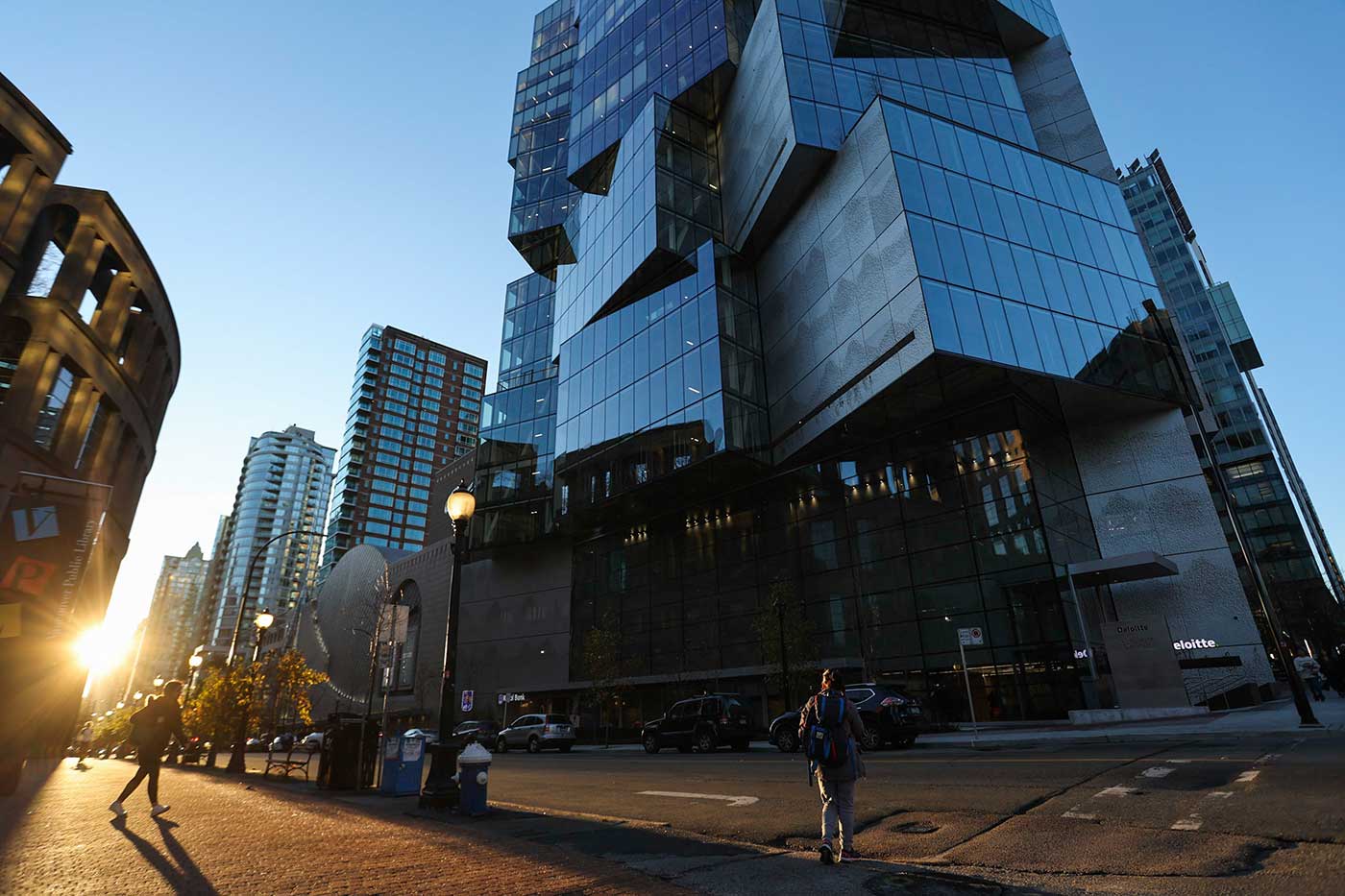
For Khoury College in Vancouver, that long term looks bright. Eccles cited a slew of exciting developments-to-be, including the growth of the campus’s space, student body, and international ranks; appeals to potential computer scientists in underserved rural British Columbia; and the presence of local entrepreneurs on campus to give students access to mentorship and a creative hub. Mynatt added that she’d love to see New-England-based undergraduates become “citizens of the world” by encouraging participating in summer programs in global campus locations like Vancouver.
“We have these fantastic leaders and partners; as a group, we can move the needle and improve society,” Edmunds said. “It’s not only that we can; Khoury College feels that it’s an obligation.”
The Khoury Network: Be in the know
Subscribe now to our monthly newsletter for the latest stories and achievements of our students and faculty